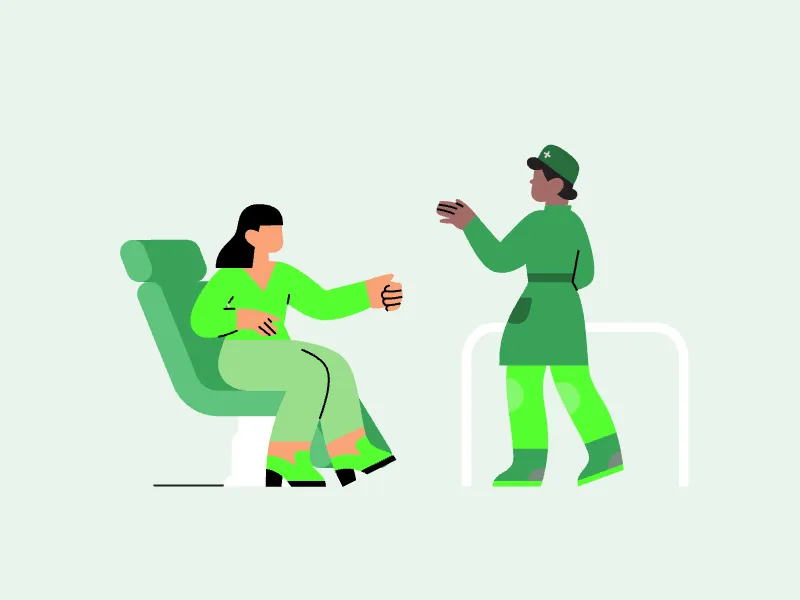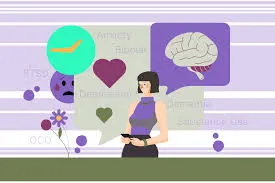Depression and treatment rates in the U.S.
Depression, also known as major depressive disorder (MDD), is one of the most common psychiatric disorders in the U.S., affecting about 21 million adults throughout the country. This figure represents over 8% of adults in the U.S.1 Here are some other relevant stats related to depression and treatment:1
- Biracial people reported the highest rates of major depression, with nearly 16%.
- Adult women reported higher rates of major depressive episodes than adult men.
- The age group with the highest rates of major depression was adults between 18 and 25.
- More than 4 million U.S. adolescents between 12 and 17 struggle with depression.
- Teen girls experience depression at about triple the rate that teen boys do.
- Much like adults, adolescents with two or more races reported the highest rates of major depressive episodes.
- In 2020, nearly 3 million adolescents experienced a major depressive episode with severe impairment in functioning.
- In 2020, nearly 42% of adolescents received treatment for their depression in the past year.
- In 2020, about 66% of U.S. adults received treatment for depression in the past year.
- In 2020, approximately 71% of depressed adults experiencing severe dysfunction received treatment in the past year.
Although many people do seek out and receive the treatment they need to recover from depression and learn adaptive coping skills, many individuals still aren’t able to access quality care. This is due to many barriers to treatment, such as finances, lack of health insurance, lack of transportation or other geographical barriers, stigma, and more. Additionally, other mental health disorders, such as eating disorders, can complicate depression and make it harder for someone to reach out for help.
The connection between depression and eating disorders
Depression and eating disorders commonly co-occur. In fact, about 42% of people with anorexia, 71% of individuals with bulimia, and 46% of those with binge eating disorder have a co-occurring mood disorder, which depression falls under.2
The connection between these two conditions is not entirely understood, though experts offer several explanations or theories. The reason the relationship isn’t clear is because both of these disorders are complex and multi-faceted, caused by a myriad of biological, sociological, and psychological risk factors and influences. It’s already impossible to determine a single cause of an eating disorder or major depressive disorder, let alone when these conditions co-occur.
Plus, each eating disorder is distinct and affects people differently. For example, malnourishment in those with anorexia may trigger neurological changes that can increase a person’s risk of experiencing depression. Not to mention, eating disorder symptoms like weight and appearance obsession, body dissatisfaction, low self-esteem, and body surveillance can contribute to depressive symptoms or mood.3 Further, people experiencing eating disorders often struggle with shame, guilt, and isolation, all of which can trigger depression or increase its severity.
On the other hand, the symptoms of major depressive disorder could contribute to eating disorder development, especially if a person isn’t equipped with healthy coping strategies. They may turn to disordered eating behaviors, such as binging, purging, restricting, and excessive exercise in order to cope with negative mood or unwanted emotions. Lastly, depression can affect a person’s appetite and weight, which can contribute to an unhealthy relationship with eating, movement, or both.
{{link-bank-two-column}}
Getting integrated care for a dual diagnosis
Co-occurring depression and an eating disorder like anorexia or bulimia is known as a dual diagnosis. When left untreated, depression and an eating disorder can fuel one another, ultimately leading to more complications. In fact, research shows that co-occurring depression in people with eating disorders are associated more severe symptoms, a poorer course of the condition, and “burden of illness,” which focuses on the hardships and complications caused by the eating disorder.6
Plus, eating disorders and major depressive disorder have some shared symptoms, such as worthlessness, guilt, irritability, hopelessness, and suicidality.4,5 These shared symptoms can contribute to both the development of co-occurring eating disorders and depression as well as the maintenance of these conditions.
Because these conditions fuel one another, a dual diagnosis requires integrated and comprehensive care that treats both the eating disorder and the depression concurrently. Otherwise, if a person receives treatment for depression but not an eating disorder they may continue disordered eating behaviors that could trigger a depressive episode. The opposite is also true—if someone receives eating disorder treatment without addressing their depression then their depression could trigger an eating disorder relapse.
Healing requires intensive treatment, typically in an inpatient or residential setting where individuals can receive a high frequency of care from a variety of treatment professionals, such as:
- Psychiatrists
- Therapists
- Doctors
- Nurses
- Dietitians
- Social workers
- Movement therapists
- Art therapists
Other intensive treatment options include partial hospitalization programs (PHPs) and intensive outpatient programs (IOPs), which offer several hours of treatment per day but still allow patients to return home during non-treatment hours. This option allows for more flexibility during recovery but often necessitates a strong support system and high patient motivation.
Sometimes people don’t always find the right level of care the first time around. If you enter a treatment program for depression and an eating disorder and find that you need more support, you can always step up to an inpatient program. Meanwhile, if you complete a residential program but still need professional support, you can make your way through the continuum of care and step down to an outpatient program. The most important thing is that you receive specialized treatment that will take all of your individual needs into consideration.
































